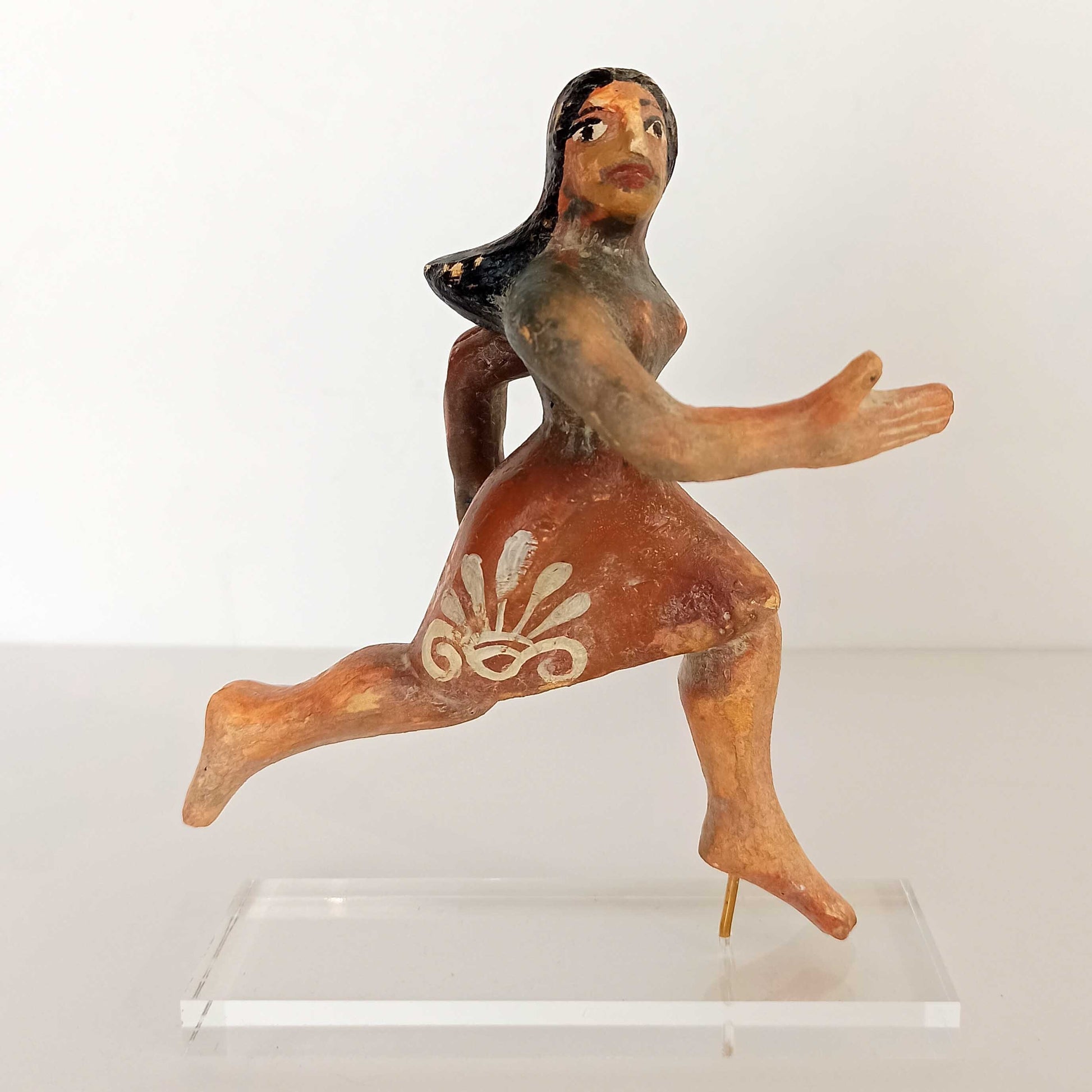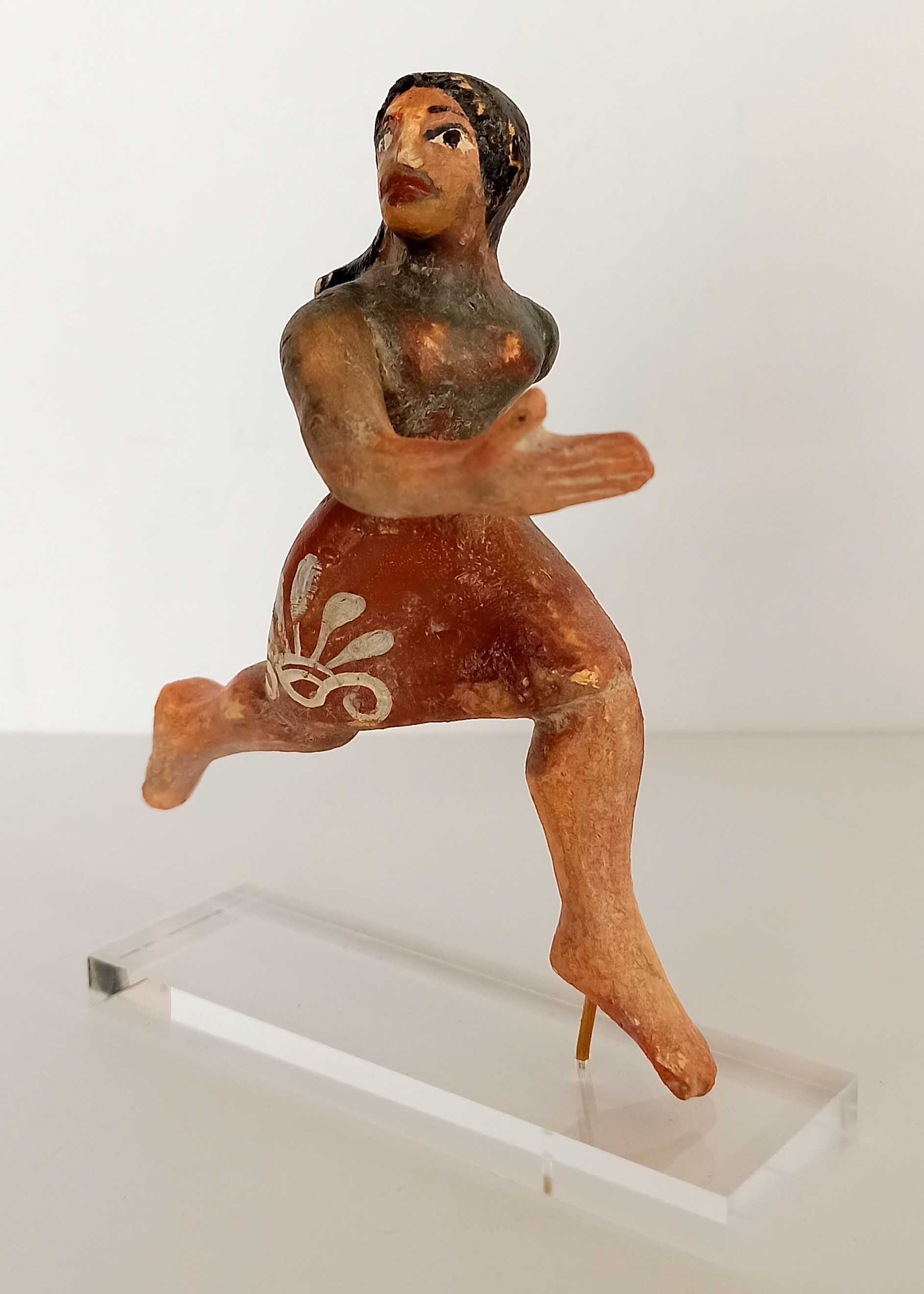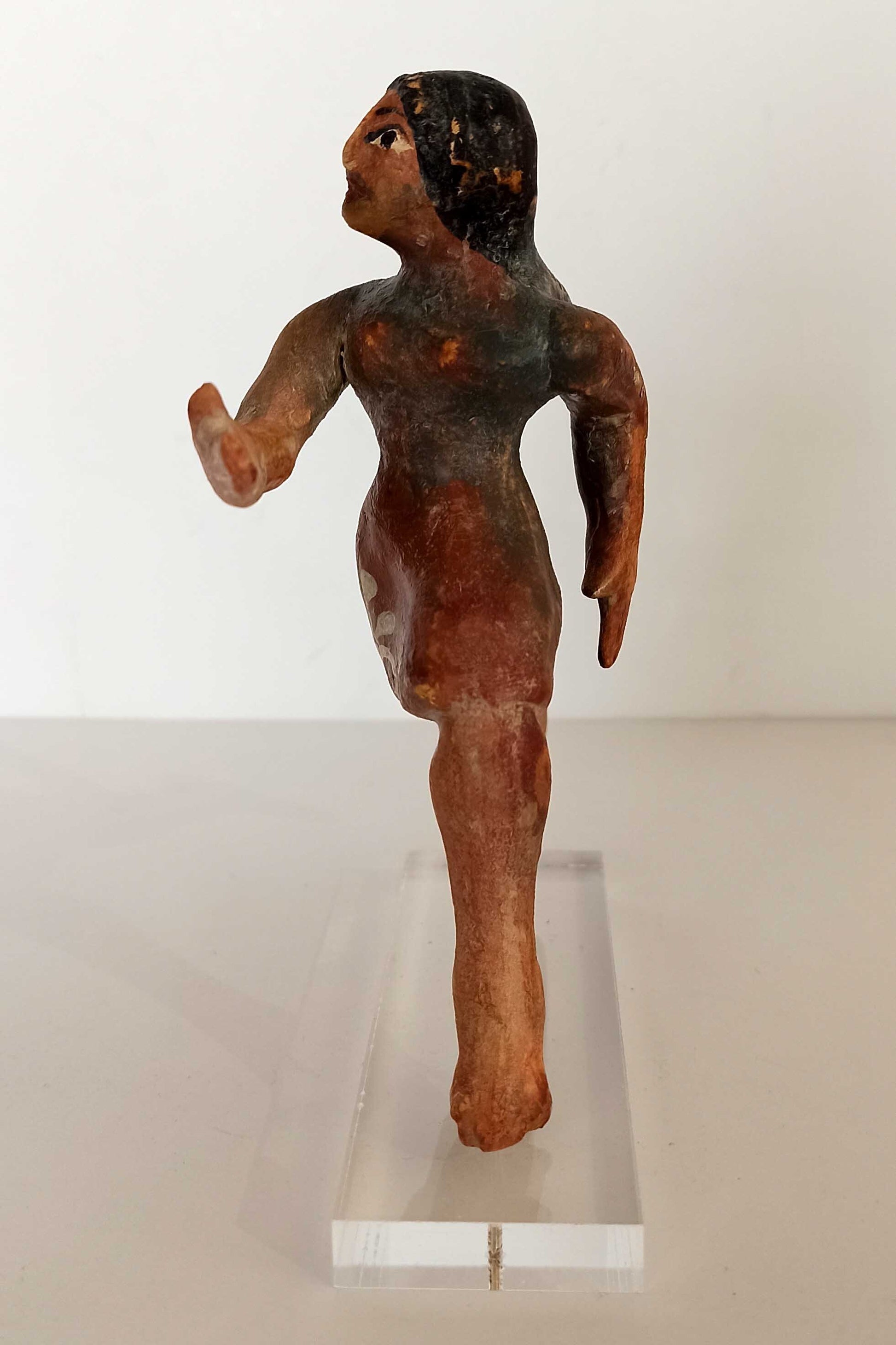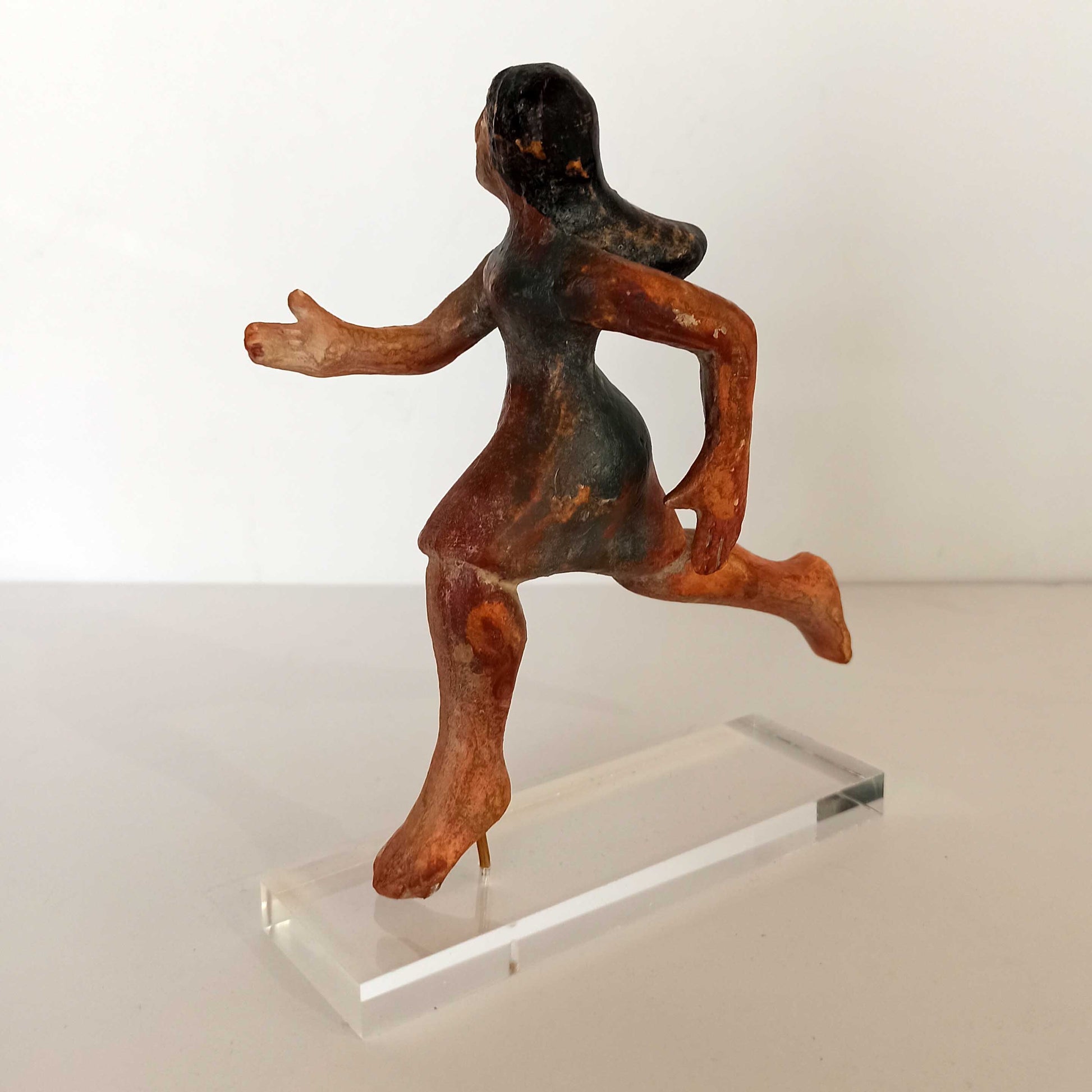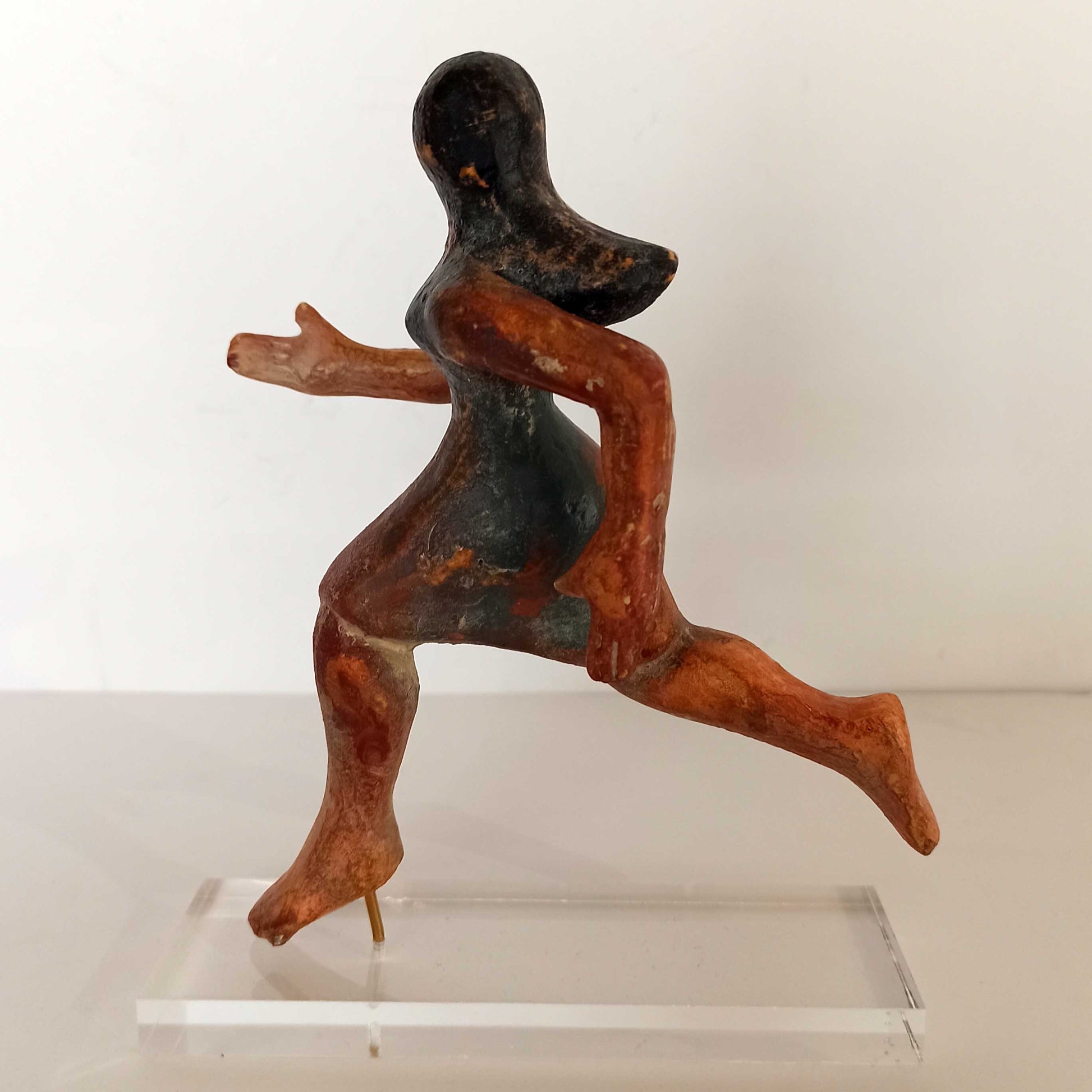Gallery Demeter
Woman Runner - Athlete - Foot Race - Ancient Greek Heraean Games - Plexiglass Base - Ceramic Artifact
Woman Runner - Athlete - Foot Race - Ancient Greek Heraean Games - Plexiglass Base - Ceramic Artifact
Regular price
€79,90 EUR
Regular price
Sale price
€79,90 EUR
Unit price
per
Tax included.
Shipping calculated at checkout.
Couldn't load pickup availability
Item Specifics
Condition: New, Handmade in Greece.
Height: 17 cm - 6,7 inches
Width: 14 cm - 5,5 inches
Length: 4 cm - 1,6 inches
Weight: 240 g
The Heraean Games, dedicated to goddess Hera, the queen of the Olympian gods and Zeus’ wife, was the first official women’s athletic competition to be held in the Olympic stadium at Elis. The games, which occurred in the 6th century BC, were probably held in the Olympic year itself, prior to the men’s games.
Initially, the Heraean Games only consisted of foot races. The champions of the events were rewarded with olive crowns and meat from the animal sacrificed to Hera. They also got the right to dedicate statues or portraits to Hera – winners would inscribe their names on the columns of Hera’s temple. The only recorded victor of the foot races is the mythical Chloris, Pelops’ niece who was also said to be Zeus’ granddaughter.
Participation in the Heraean Games was restricted to young, unmarried women. The men generally competed nude in the Olympics but the women taking part in the Heraean Games generally wore a chiton, a garment worn by men while doing heavy physical work. Pausanius in his accounts describes their appearance as “their hair hangs down, a tunic reaches to a little above the knee, and they bare the right shoulder as far as the breast.”
No one is certain of the origin of the Heraean Games. Pausanius provides two separate theories on the subject. The first theory suggests that Queen Hippodameia was grateful to Hera for her marriage to Pelops and selected 16 women to compete in footraces in Hera’s honour. The other theory suggests that it was the result of diplomatic efforts to resolve tensions between the cities of Elis and Pisa (in western Greece). Sixteen wise, elderly women were chosen from each of the 16 Peloponnese city-states to weave a robe for Hera every four years and to organise the games as symbols of peace. Pausanius wrote:“Every fourth year there is woven for Hera a robe by the Sixteen Women, and the same also hold games called Heraea.”
We cannot ascertain what societal changes led to the Greeks establishing separate games for women or whether the Heraean Games were only a temporary easing of restrictions on women. However, most historians suggest that it could be due to the rise of Roman influence in the Hellenic peninsula. In Rome, daughters of wealthy families freely participated in men’s festivals and athletic competitions.





